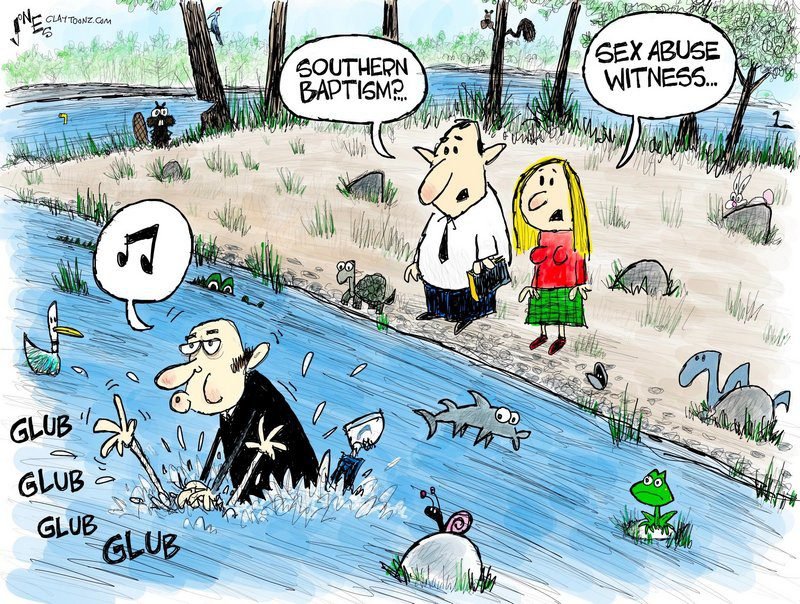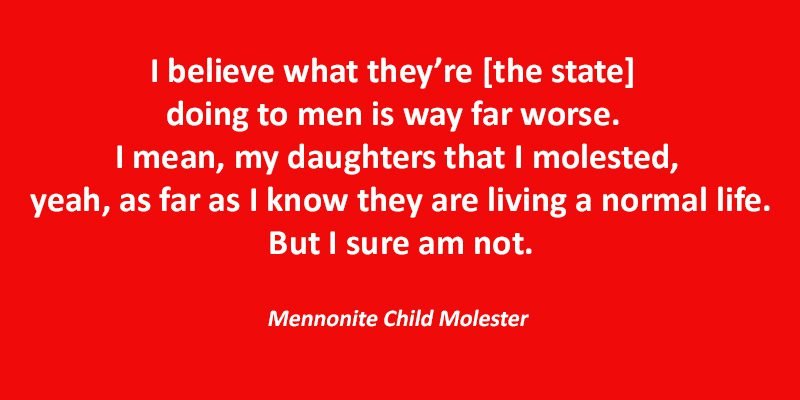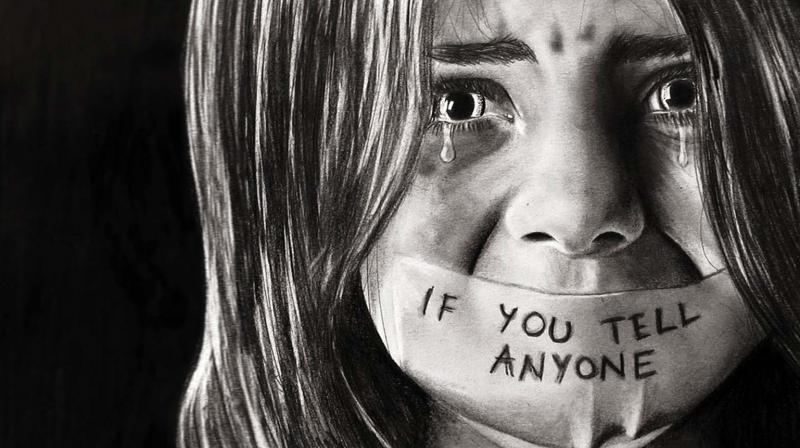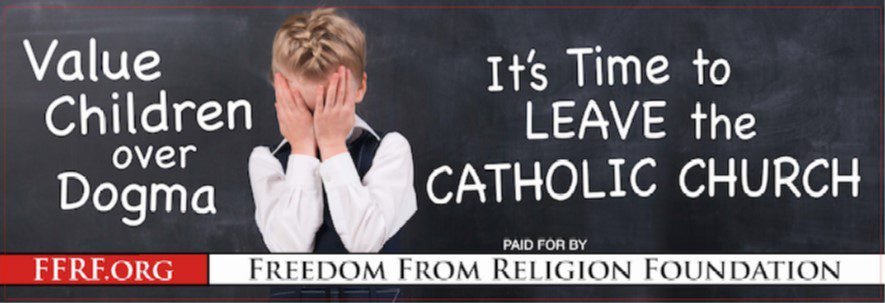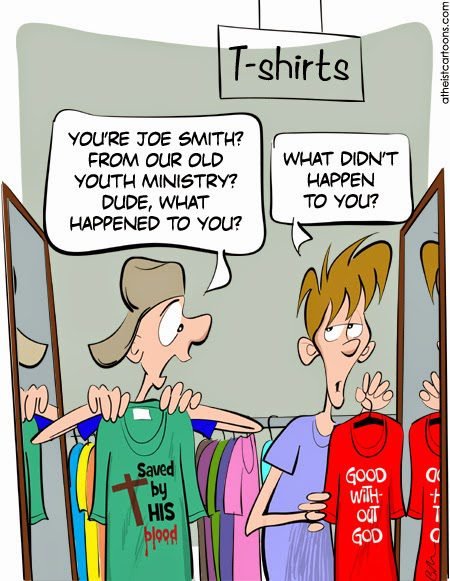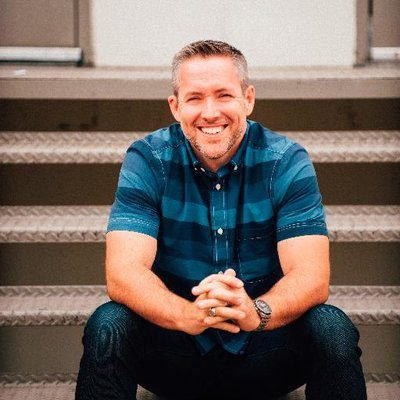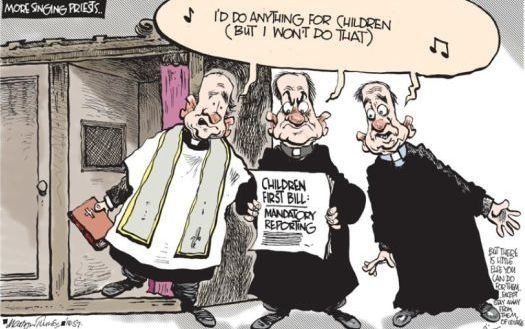
Six years ago, I posted the first story in the Black Collar Crime Series. Focused primarily on clergy sexual misconduct, the sheer level of reports puts to rest the notion that such crimes are committed by a “few bad apples.” Numerous times a day, I receive notices from Google Alerts, notifying me that a new report of alleged clergy crime has been posted to the Internet. I look at every notification, choosing to only publish the stories that are publicly reported by reputable news sites. I am often contacted by victims who are looking to expose their abusers. I do what I can to help them, but if there are no public news reports or other information that can corroborate their stories, I am unable to do anything for them. Believe me, I WANT to help them, but it would be legally reckless of me to post a story without sufficient evidence. I generally also only publish reports about clerics from the United States — mostly Protestant, Evangelical, Southern Baptist, and Independent Fundamentalist Baptist (IFB). While I post stories featuring Catholic priests from time to time, I usually leave such reporting to others. The same could be said of widespread clergy sexual misconduct in Africa. The point I am trying to make here is this: the 1,000+ published reports in the Black Collar Crime Series are just the tip of the iceberg. As of today, I am also sitting on over 1,000 clergy sexual misconduct stories I have not published due to lack of sufficient evidence or a shortage of time to do so.
Not only are there more than just a “few bad apples” preying on church members, when you add to the total the number of pastors and other religious leaders who have consensual sexual relations with congregants, it is clear for all to see that so-called “men of God” are hardly the pillars of moral virtue they claim to be. In 2015, I wrote a post titled, Is Clergy Infidelity Rare? Here’s an excerpt from the post.
In October 2013, Doug Phillips, president of the now-defunct Vision Forum Ministries confessed to church leaders that he had an inappropriate sexual relationship with a woman who is not his wife. Defenders of Phillips took to their blogs, websites, Twitter, and Facebook to do damage control on the behalf of Phillips and the patriarchal movement. One such defender is Independent Baptist pastor Voddie Baucham, a man who is widely viewed as the African-American version of Doug Phillips.
A Christian woman by the name of Julie Anne posted an article on the Spiritual Sounding Board blog about the Doug Phillips scandal. Her post mentioned the following quote by Voddie Baucham:
Dennis, You ask, “How many times do we see this in Christian leadership?” The answer may surprise you, but it is actually quite rare. There are hundreds of thousands of churches in America. We hear of these types of things on a national basis when they happen to high profile people. However, considering the number of people in Christian leadership, the numbers are quite small. As to your other point, most men who go through something like this never recover. Of course, there are exceptions. Moreover, there are some circles wherein things like this, and much worse, are merely swept under the rug. However, in circles where leadership is taken seriously, it is very difficult for a man to come back from things like this. People have long memories, and tend to be rather unforgiving. (emphasis mine)
Baucham repeats the oft-told lie that clergy sexual misconduct is quite rare. I have heard this line more times than I can count. It is an attempt to prop up the notion that clergy are more moral and ethical than most people; that they are pillars of virtue and morality. Such claims are patently false.
In 2007, Dr. R.J. Krejcir of the Francis A. Schaeffer Institute, wrote a post detailing his recent study of clergy infidelity. Krejcir stated:
- Of the one thousand fifty (1,050 or 100%) pastors we surveyed, every one of them had a close associate or seminary buddy who had left the ministry because of burnout, conflict in their church, or from a moral failure.
- Three hundred ninety-nine (399 or 38%) of pastors said they were divorced or currently in a divorce process.
- Three hundred fifteen (315 or 30%) said they had either been in an ongoing affair or a one-time sexual encounter with a parishioner.
So much for clergy sexual infidelity being rare.
Numerous studies have been conducted concerning sexual infidelity among married people. The percentage varies widely, but it is safe to say that between ten and twenty percent of married people have been sexually unfaithful to their spouse. The percentage is higher for men than it is women.
We know that men of the cloth are not morally or ethically superior. In the United States and Canada, there are approximately 600,000 clergy. According to the Hartford Institute for Religion and Research, this total includes active clergy and “retired clergy, chaplains in hospitals, prisons and the military, denominational executives, and ordained faculty at divinity schools and seminaries.” This number does not include clergy who are affiliated with independent churches. If between ten and twenty percent of married people commit adultery, and clergy are no different morally from non-clergy, then this means that between 60,000 and 120,000 clergy have committed adultery. Again, so much for clergy sexual infidelity being rare.
Keep in mind, this is only the number of CONSENSUAL sexual relationships.
Most people in the United States profess to be Christians. Taught to think that their churches are safe havens and their pastors have only their best interests at heart, many of them have a hard time believing and accepting that bad things happen, and far too often the perpetrators are pastors, deacons, elders, youth leaders, worship leaders, Sunday school teachers, church janitors, evangelists, missionaries, bus drivers, Christian school teachers, and principals. Wherever Christians have authority over others, you will find sexual misconduct — both legal and criminal.
What makes churches and clergy so dangerous is that congregants trust pastors. It’s the world they need to worry about, or so church leaders tell them anyway. Led to believe that Christians — thanks to salvation and the Holy Ghost — are above the fray and oh-so-humbly morally superior, church members naively trust those who have “God-given” authority over them. Even after their pastors and other church leaders have been exposed as sexual predators, many congregants refuse to believe that the men and women they looked up to abused others. You who read the Black Collar Crime Series regularly know that it is not uncommon to have congregants comment, defending their pastor or suggesting that the police or district attorney are out to get their preacher.
Sadly, it is not uncommon for church members to blame victims instead of putting the blame where it belongs: on their ministers, youth pastors, and other church leaders. Even after church leaders are found guilty in criminal court, congregants will often line up to testify at sentencing hearings; letting courts know that their pastors are good men who made a momentary mistake (never mind the fact that most pastors convicted of sex crimes are repeat or habitual offenders). Worse yet, on way too many occasions, once incarcerated clerics are released from prison, they find their way back to churches looking for pastors, or they start new churches — hiding from their new congregations their criminal past. One of the reasons I continue to publish Black Collar Crime stories is that this blog becomes a database of sorts for people doing their due diligence before accepting as fact the “testimony” of prospective pastors.
And to churches who hire registered sex offenders, knowing what they did at their previous churches? Don’t be surprised when your new God-fearing pastor treats your church as a hunting ground. Get your head out of your ass and protect the children, teens, and vulnerable adults in your churches. “But, Bruce, as Christians, we are supposed to forgive and forget. It’s forgetting I have a problem with. Forgetting what clergy have done in the past invites and encourages new abuse and harm. A few years ago, a family member who is an IFB pastor, mentioned in a positive light the “ministry” David Hyles has to “fallen” preachers. (Please see Disgraced IFB Preacher David Hyles Helping Fallen Pastors Get Back on Their Horses and Is All Forgiven for David Hyles? and David Hyles Says My Bad, Jesus, and UPDATED: Serial Adulterer David Hyles Has Been Restored.) I thought, ARE YOU FUCKING KIDDING ME! But, when you believe in 1 John 1:9 Christianity (If we confess our sins, he is faithful and just to forgive us our sins, and to cleanse us from all unrighteousness), it is easy to dismiss past bad behavior as being “under the blood” and “buried in the depths of the sea of God’s forgetfulness.” No matter what Christians do — including rape, murder, and fraud — wiping their slates clean is but a prayer away. (Note: I later talked to the family member. He genuinely didn’t know about David Hyles’ past. He was a child in the 1980s when the Biblical Evangelist published its expose on Jack and David Hyles. I guess I am officially an old man.)
Years ago, a former colleague of mine in the ministry, told me that at his church they believed in forgiveness, and that’s why they didn’t run criminal background checks on church workers. “Bruce,” this pastor said, “when a person gets saved, their past ‘sins’ are forgiven and remembered no more. If God doesn’t remember their sins, neither should we.” In his naive, Bible-sotted mind, once a person is really, really, really “saved,” there’s no reason to not “trust” them, even if, in the past, he or she was a murderer, rapist, serial adulterer, or child molester. “Either our sins are under the blood, or they are not, Brother,” this preacher told me. Many years ago, I warned him that one of his daughters was in a sexual relationship with a teen boy in my church. He told me, “Oh, they would never do that!” Right, two horny kids, all alone on a back-country road? What were they doing, studying the Bible and praying? A month or so later, he came home early from his church’s midweek prayer meeting, only to find his daughter and her boyfriend naked and having sex on the living room floor. Sadly, in far too many churches, trusted church leaders are assaulting and abusing congregants, and everyone around them is saying, “oh, they would never do that.” As the Black Collar Crime series makes clear, such thinking is not only naive, it’s dangerous. Throw in pastors who psychologically manipulate congregants and use those who trust them as a means to an end, and I can safely say that churches are some of the most dangerous places in the United States; that parents who “trust” church leaders with their children and teenagers risk their charges being misused, abused, and assaulted.
No, I am not saying all church leaders are bad people, but I am saying a large enough percentage of them are — more than a few bad apples, to be sure — that wisdom and prudence demand keeping children right by your side when attending houses of worship. Better safe than sorry, I say. (Dear Evangelical Church Leaders: It’s Time to Get Rid of Your Youth Pastors and Youth Departments) Suppose you went to the local grocery with your children to buy some groceries. Suppose there were 200 shoppers in the store, and ten of them were child molesters or registered sex offenders. Knowing this, would you let your children wander through the store unattended? Of course not. Why, then, should churches and preachers be treated any differently?
Let me leave you with one poignant thought: countless Christians have prayed for God to deliver them from the hands of their abusers, and without exception, God ignored their prayers. If left up to “God,” predator church leaders will, with impunity, cause untold harm. It is up to us to put a stop to clergy sexual misconduct. All I can do is write about the subject. But if you are a church-going Christian, you have the responsibility and duty to make sure children, teens, and vulnerable adults are safe when attending church, school, or church events. Doing nothing is no longer an option.
Bruce Gerencser, 66, lives in rural Northwest Ohio with his wife of 45 years. He and his wife have six grown children and thirteen grandchildren. Bruce pastored Evangelical churches for twenty-five years in Ohio, Texas, and Michigan. Bruce left the ministry in 2005, and in 2008 he left Christianity. Bruce is now a humanist and an atheist.
Connect with me on social media:
Your comments are welcome and appreciated. All first-time comments are moderated. Please read the commenting rules before commenting.
You can email Bruce via the Contact Form.

